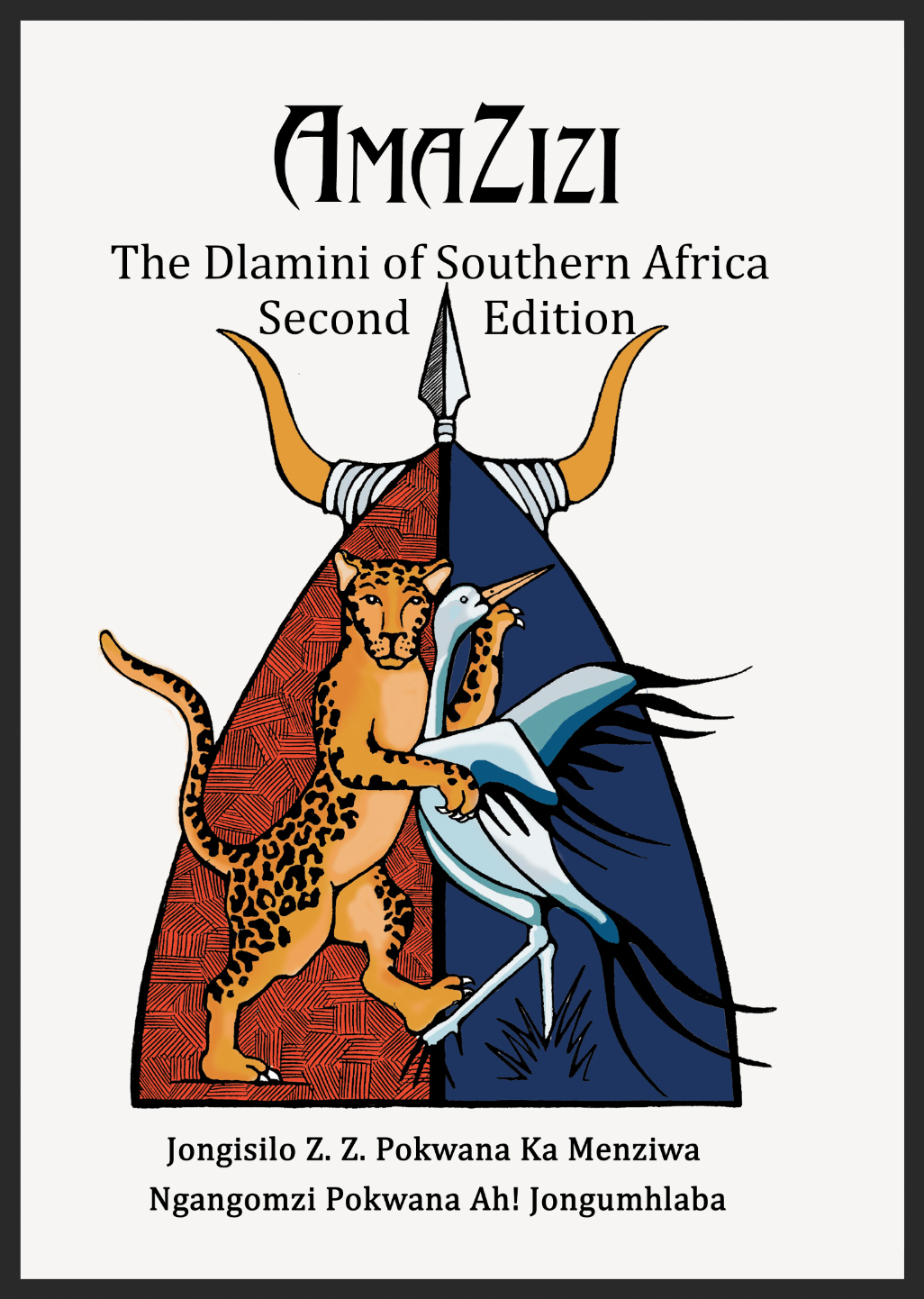

About the Book:
The Dlamini people are a stock race that, during the 19th century, spread throughout the then largely uninhabited Southern Africa. Today they can be found concentrated in Swaziland, in the Eastern Cape, in KwaZulu Natal and in many other parts of the country.
The first edition traced a story of these people from before 2000 years ago until today, then focused on a section of the Dlamini known as AmaZizi. The second edition expands this base with new research and information, including details on new tribes, traditional ceremonies, translated praise poetry, discovered matriarchal information and more.
If you have the surname Dlamini, the history of your ancestors can be found within these pages.
Accolades:
“A notable contribution to the history of AmaZizi and the history of South Africa as a whole. Where university historians have fallen short, Jongisilo Pokwana ka Menziwa has addressed the key historical issues which really matter. This is indeed history of the people, for the people and by the people. May others follow where Jongisilo has shown us the way!”
Professor Jeff Peires, author of The House of Phalo
Head of Cory Library at Rhodes University
“You have made the history of your people come alive and I am convinced that whoever reads this book will find it enriching and critically engaging. The style of writing is personal and self-critical. That has made your version of the history of AmaZizi educational, informative, inspiring, provocative, engaging, challenging and insightful. Congratulations!”
Sibongiseni Mkhize
Historian and CEO of Robben Island
“In these days of African Rennaisance, where our educated intellectuals are calling for the rise of Africa, this book ...serves as a timely reminder that Africans have organic building blocks, the clans, which can be used to uplift the less fortunate by the better endowed. Centuries of colonial domination and racism have had such a profound impact on the psyche of the African that he tends to view recognition of his cultural identity as something to be ashamed of because his colonisers have told him that to be liberated and progressive you need to denounce that identity as it is tantamount to tribalism. The colonisers, on the other hand, continue to live out their dreams by sticking with each other. They look after each other wherever they may be. Upon reading this book AmaZizi will identify with its contents and, hopefully, revive their solidarity and honour their ascendants by ensuring that no Zizi will go hungry, sleep out in the cold or remain unclothed while their stomachs are full, live in palatial luxury, with more clothes than they need. Other clans should be aroused to act likewise... I recommend it.”
iNkosi Phathekile Holomisa (Ah! Dilizintaba)
Head of the Hegebe Clan, President of Contralesa
South African MP
“MaZizi into endizayithetha inye, ndiyabulela Jongisilo. Bathi abakwazi ukuthetha, into iyane ivuke apho ibikho. Inoba ke licebo eli elenziwa nguThixo lokuvuselela umnombo wakokwethu. Nalento idala ukuba ude usibize yimbeko, iqala apha endlini. Uthi ke uThixo beka uyihlo nonyoko ukuze imihla yakho yolulwe emhlabeni.
Liyinyaniso eligama lithethwa nguMageju lokuba xa sibizelwa iintlanganiso ezikumila kunje sakukwenza wonke unako nako ukuba sibekho noxa sesingamaxhego amadala ngoluhlobo, siyabulela Dlamini ngalo ndlela, enkosi.”
Prince Makhwezana Irvin Pokwana ka Menziwa, Aah Dubulegeqe (Born 1925)
KwaZangashe, Saturday 5th June 2007
“Jongisilo, I recognise your efforts in contributing to preserving this indigenous knowledge. Keep researching and writing.”
Tembi Tambo
South African Consul General to Hong Kong
“Dlamini ndithe kudade wethu, osekushiyeke mna naye kuphela kuTata uMpondombini, ndathi make ndizokufika apha kwabhuti uGwebindlala, ndize kusabela ukuba sibizelwani na, kude kuze noNkosi uZwelixolile kunye nawangaphesheya amadoda. Ifanele ukuba ibe ikhona into.
Ibekiwe maZizi, ndiyabulela. Akwabe kwakuqhubeka ngoluhlobo sithethe ngalo. Dlamini ayingobantu baninzi ngaxeshanye abanengqondo zokukhuphulula umzi nantoni na. Mnye, bazokwazi ukulandela abanye. Abanakusuka bathi abantu beliwaka bacing’ intwenye ngexeshelinye. Bathi ngoku beliwaka, abenye umntu ocinge into, ababize abaxelele baze bathi “tyhini, yhe madoda masidibaneni”, utsho umzi uthi uthi khuphululu.
Bantwana bexhego, Dlamini, Jongumhlaba, ndiyabulela. Jongisilo umzi ubanje xa ugcinwa ngabantu abanengqondo. Enkosi Lamyeni.”
Prince Mngcisana Pokwana ka Menziwa, Aaah Mageju (Born 1929)
KwaZangashe, Saturday 5th June 2007
Statistics
Project Type:
Cover Artwork:
Author:
Author:
Graphic Design:
Editor
Book Size:
Page Count:
Binding:
Colour:
Cover:
Copyright:
Publication Year:
Edition:
ISBN:
Publisher:
Printer:
About the Authors:
Ngangomzi Pokwana Ah! Jongumhlaba is the son of Gwebindlala and Nomaneji Pokwana. Currently a Virbac sales executive, he has researched the history of amaZizi since a young age, when he was greatly inspired by his father. Gwebindlala Pokwana's knowledge and passion for history has inspired both son and grandson.
Son of Jongumhlaba and Nonesi Pokwana Ka Menziwa, Jongisilo Z. Z. Pokwana Ka Menziwa is director of Vusizwe Foundation for historical research and Chair of CONTRALESA, Johannesburg Region. After a rural upbringing, Jongisilo Z. Z. Pokwana Ka Menziwa was introduced to city life as a teenager. He currently works for himself in the arts industry as a project manager, events manager and small and medium business strategy consultant. Inspired by his grandfather's remembrances, he researched the history of AmaZizi, then verified his findings with his grandfather. The result was a father and son collaboration, the outcome of which you hold in your hands.
